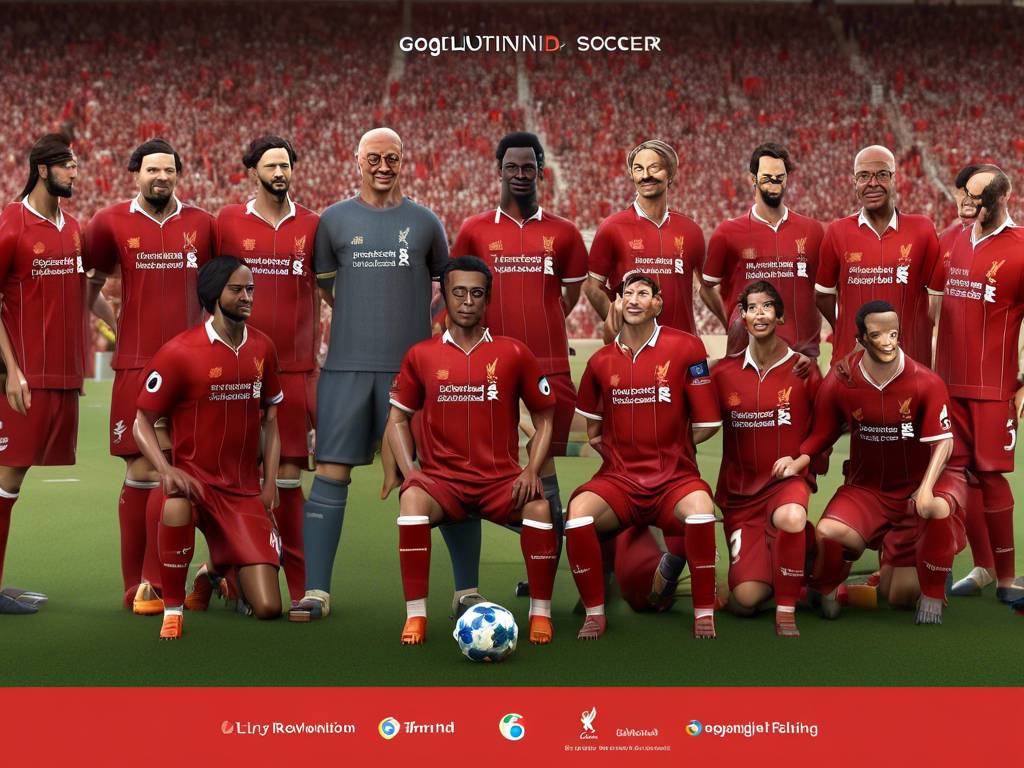Google DeepMind Collaborates with Liverpool FC to Introduce AI into Soccer
In a strategic move, Google DeepMind has partnered with Liverpool FC to bring Artificial Intelligence (AI) technology into the world of soccer. The collaboration aims to enhance soccer tactics and provide valuable insights for coaches using an AI tool called TacticAI, developed by Petar Veličković and his team at Google DeepMind. This three-year research project highlights the dynamic nature of the AI industry and its potential impact on various sectors.
Introducing TacticAI: The New AI Model for Soccer Tactics
TacticAI, also known as a Large Language Model (LLM), is a cutting-edge AI tool designed to analyze soccer tactics, specifically focusing on corner kicks and player setups. This innovative AI model showcases Google DeepMind’s commitment to advancing AI technologies and their practical applications in real-world scenarios. The development of TacticAI demonstrates the potential for AI to revolutionize the way coaches strategize and optimize their teams’ performance.
Key Features of TacticAI:
- Provides insights for soccer coaches on corner kicks and player setups
- Utilizes generative and predictive AI techniques
- Helps determine the most probable player to receive the ball during corner kicks
- Predicts when a shot will be taken and suggests adjustments to player setups
The introduction of TacticAI exemplifies the growing trend of integrating AI technologies into various industries. Recently, Apple unveiled its own AI model, MM1, showcasing the rapid advancement and adoption of AI across different sectors.
TacticAI and Its Link to the Premier League
To ensure the accuracy and effectiveness of TacticAI, the AI model was trained using data from previous Premier League matches, specifically focusing on corner kicks during England’s 2020 to 2021 seasons. The extensive dataset includes information on player height and weight, allowing TacticAI to make informed predictions and suggestions for optimal player positioning during corner kicks.
Notable Findings from TacticAI:
- TacticAI’s suggestions for corner kick setups closely resemble real-world tactical setups
- Human experts chose TacticAI’s suggestions over 90% of the time
- The receiver of the ball was among TacticAI’s top three candidates in 78% of cases
It is important to note that TacticAI is not intended to replace human coaches but rather enhance their capabilities. Petar Veličković emphasizes that the AI model goes beyond sports and has the potential to model various aspects of human psychology more effectively. This collaboration between Google DeepMind and Liverpool FC showcases the potential synergy between AI technologies and traditional sports coaching.
The Widespread Application of AI Tools Across Industries
The launch of TacticAI is just one example of how AI tools are transforming multiple industries. In recent weeks, various innovative AI models have been introduced:
- Devin from Cognition Labs – the world’s first AI software engineer
- Genie – Google’s AI model for generating video games
- Gemini – an AI tool with unique functionalities
These recent developments highlight the widespread impact of AI technologies and their potential for further evolution and integration into various sectors. The collaboration between Google DeepMind and Liverpool FC serves as a testament to the transformative power of AI in sports coaching and beyond.
Hot Take: The Future of AI in Sports
The partnership between Google DeepMind and Liverpool FC marks an exciting milestone in the integration of AI into sports. As AI technologies continue to advance, we can expect further innovations that enhance coaching strategies, player performance analysis, and overall sports management. The potential applications of AI in sports are vast, and this collaboration sets a precedent for future partnerships between tech giants and sports organizations.
The introduction of TacticAI demonstrates how AI can provide valuable insights and optimize decision-making processes in real-time scenarios. As the field of AI continues to evolve, it is crucial for coaches, players, and organizations to embrace these technologies to stay competitive and achieve greater success.





 By
By
 By
By
 By
By
 By
By
 By
By
 By
By